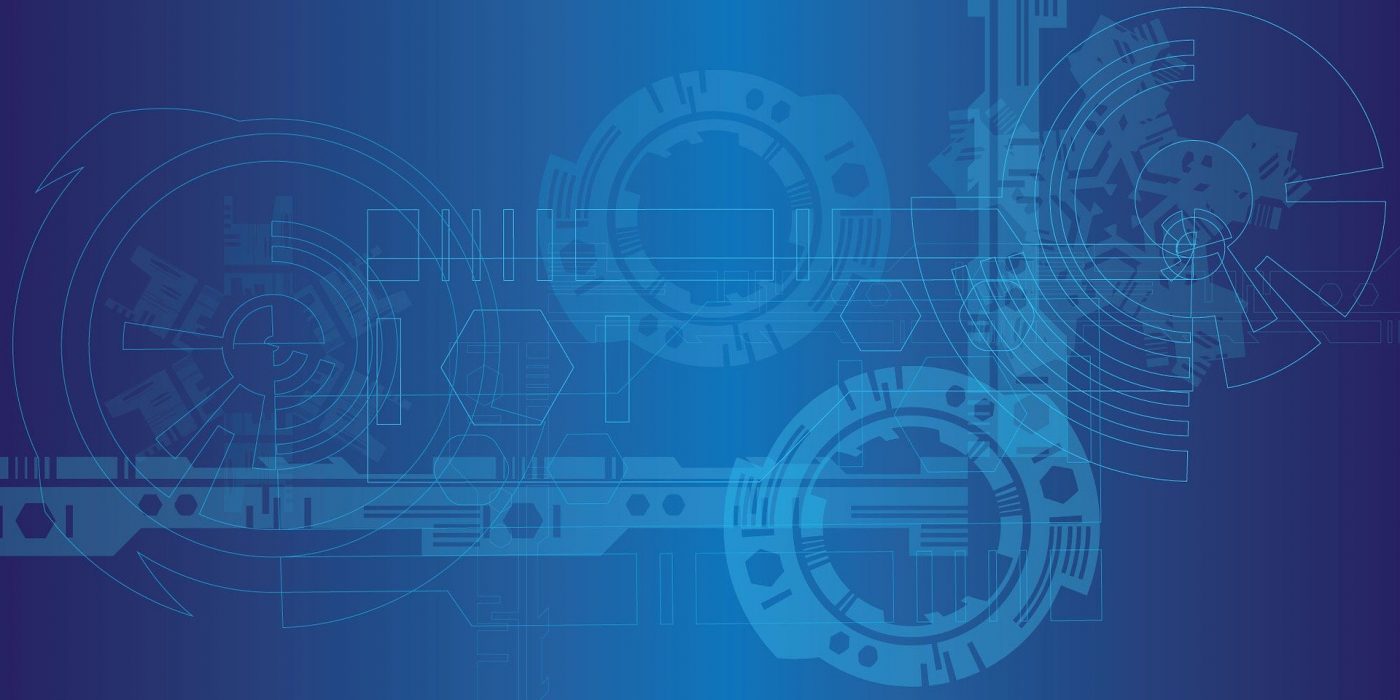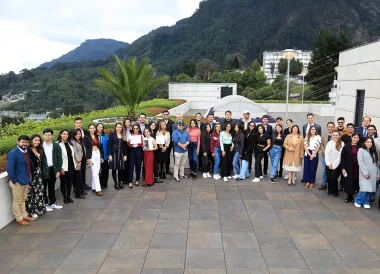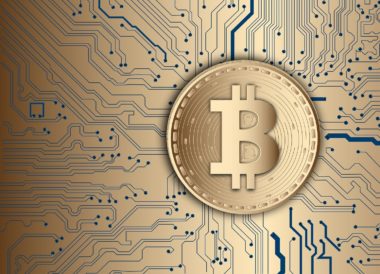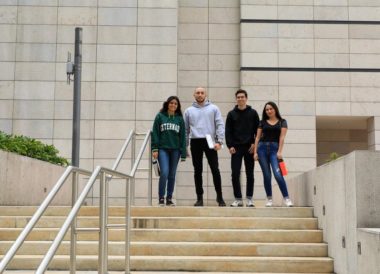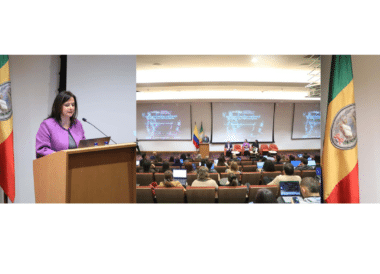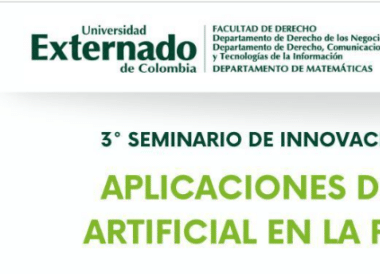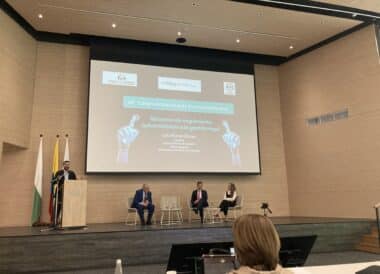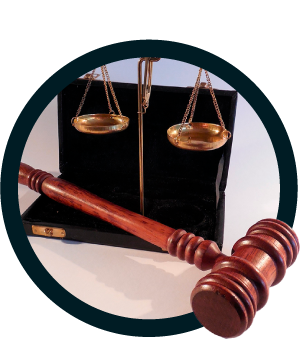Comercio Electrónico
13 de abril de 2021
Lex electronica and disruptive technologies
The recognition of the Lex Mercatoria as a complementary legal order to the international legal order as well as to local laws allows to revalue the practices of merchants. Its application has had a practical effect in fields as varied as international trade and international arbitration.
The compilation of uses, customs and principles in commercial activities has been a useful inheritance to allow the evolution of business law as well as to ensure that the law fulfills a more efficient role in the face of the evolution and transformation caused, among others, by technology and the globalization.
The digitization of commercial activities has also brought discussion about the insufficiency of traditional sources in law. The first stage of this digital transformation occurred due to the appearance and gradual consolidation of electronic commerce. UNCITRAL’s reaction was rapid through the implementation of the uniform law through the Model Law on Electronic Commerce (1996), the Model Law on Electronic Signatures (2000) and the Electronic Communications Convention in International Contracting (2005).
The discussion regarding the existence of a law for cyberspace known as lex electronica has been going on for several decades and today it could be said that rather than a new legal system, we are in the presence of a multiplicity of legal sources, traditional and new (such as technological standards or technical norms) that allow to solve specific cases and legal problems.
Both uniform international law and local laws (e.g. Law 527/99) have recognized the existence and validity of electronic contracts. The validity and enforceability of electronic contracts as well as the methods of authenticity and integrity of data messages have been topics of legal advance. The Law 527 of 1999 has been a catalyst for changes in the rules of evidence, judicial procedures, public procurement, notarial activity, among others. The courts have little by little interpreted the Law 527 and its regulations to give validity to the use of electronic media in relevant commercial and social activities.
The electronic signature has become a standard for the recognition of e-documents that require a minimum degree of digital security. The regulations on electronic documents have allowed in some countries both the creation of digital certification entities or trusted third parties to manage and administer digital signatures landscape and advances in the digital transformation of traditional public notaries.
The lex electronica like the lex mercatoria encompasses commercial practices, commercial customs and the standards of the technology industry. Advances in international Treaties such as Budapest Cybercrime Convention or the WIPO Internet Treaties to protect copyright and authors of digital content have particular scope for some subjects but are good examples of traditional international regulations for cyberspace.
Like lex mercatoria, lex electronica recognizes the predominantly international character of the activities carried out in the digital ecosystem. Local laws can be useful to solve some legal problems but for example the cross-border flow of personal data cannot be approached from a local perspective only. The lex electronica is expressed in a series of principles of interpretation that are different from the traditional ones of commercial law. These principles ensure that the use of electronic media is interpreted with international standards much more likely to accept its validity and enforceability.
The impact that digital entrepreneurship is bringing to industries such as financial (Fintech) and legal (Legaltech) among others has brought with it the concern if another wave of laws and regulations is necessary that are not limited to the local sphere but have an international scope and hopefully unified or harmonized. The e-platforms and social networks have adopted self-regulation of content and standards in their terms and conditions that reflect their own opinion but not necessarily internationally recognized rules. This has generated discussions about the universal scope of the right of expression against local rules, many of them originating in the constitution of each country.
Another issue of concern is how to integrate disruptive technologies such as blockchain (DLT), artificial intelligence, IoT or robotics in commercial laws, as has already happened with electronic commerce. For example, the recent UNCITRAL Model Law on Electronic Transferable Records can be a useful tool to apply the law to business models based on blockchain. precisely because one of the practical applications of this technology is the recording of information with value. It should also be noted that in the case of cloud computing, which is an omnipresent and enabling technology of many of the business models based on information, UNCITRAL has led the issuance of a Guide of frequent clauses in cloud contracts.
To the extent that there are practical applications of legal smart contracts as well as a more widespread effect of artificial intelligence in business models, it may be necessary to issue a wave of international regulations as well as it is possible to recognize international business practices in these new subjects. Algorithms, their design and their functions applied to business models generate discussion about how to make them respond to traditional criteria such as legal liability, freedom to contract and respect for fundamental rights. Disruptive technologies incorporate automation, interoperability, intensive use of data and predictability into products and services, among others. These technological characteristics are reflected in the business models that incorporate new technologies. The legal regulation must incorporate these new criteria either directly with national norms or through the principles, uses and customs of the lex electronica.
In sum, in many academic and ICT industry fora it is stated that law and regulations are always slower than technology and that the legal order is reactive in the face of technological advance. However, the integration of commercial customs, standards and practical experiences as a complement to the law allows a dynamic for the technology industry, in essence changing, in constant innovation and with new business models. It is unlikely that traditional legal regulation is sufficient for the definition of complex problems such as the interaction between machines (m2m, almost without human intervention, activities such as mobility (e.g. automated vehicles), or that in banking or real estate transactions in which the decision-making capacity of the human being is widely limited
Image by Sambeet D- Pixabay
Artículos Recientes
¡Ya está disponible el caso! Segunda versión del Concurso Laboratorio de Estrategia Legal #LSL
Invitamos a los estudiantes de pregrado y postgrado de todas las carreras a presentar [...]
Masterclass Legal Operations: Transformando la Función Legal Empresarial de Guardián de Riesgos a Creador de Valor.
El Departamento de Derecho de los Negocios y la Facultad de Administración de Empresas [...]
Conclusión del Proceso de Reforma al Investor-State Dispute Settlement
En la semana del 12 de julio de 2023, durante la sesión anual de [...]
El Departamento de Derecho de los Negocios de la Universidad Externado de Colombia abre convocatoria para la vacante de Asistente de Investigación
¡Sé parte de nuestro equipo de trabajo! Perfil del cargo: Asistente de Investigación Apoyar [...]
Docente del Departamento de Derecho de los Negocios participó en el libro Blanco de la Asociación de Derecho Internacional
La Asociación de Derecho Internacional (ADI), una de la organizaciones más antiguas y prestigiosas [...]
CRYPTO IN COLOMBIA: PROSPECTIVE 2022
By: Daniel Peña Valenzuela The volatility of the main cryptocurrencies seems to be once [...]
Convocatoria de Monitores.
El Departamento de Derecho de los Negocios se complace en anunciar la apertura para [...]
¿Se avecina una regulación de la Franquicia por parte del Gobierno? ¿O lo impedirá la Corte Constitucional?
Por: Juan Miguel Álvarez* y Diana Marcela Araujo* En diciembre del 2020, el congreso [...]
Ciclo de seminarios de Innovaciones en Justicia Digital: un espacio desde la academia que replantea el futuro del sistema de justicia.
El Seminario en Innovaciones en Justicia Digital es un evento de la Universidad Externado [...]
Rostros de mentira: Retos legales producidos por las ‘Deepfakes’
Palabras clave: Deepfake, IA, contenidos audiovisuales, redes generativas adversarias, derecho probatorio, intimidad personal. Una [...]
Memorias: Tercer seminario de innovaciones en la justicia digital- aplicaciones de la inteligencia artificial en la práctica judicial.
El pasado 19 de septiembre de 2024, las instalaciones de la Universidad Externado fueron [...]
Celebramos la realización del 40º Congreso Nacional de Derecho Comercial: Novedades y retos de la contratación mercantil y del arbitraje comercial
El pasado 30 de octubre, en Medellín, se celebró el 40º Congreso Nacional de [...]


